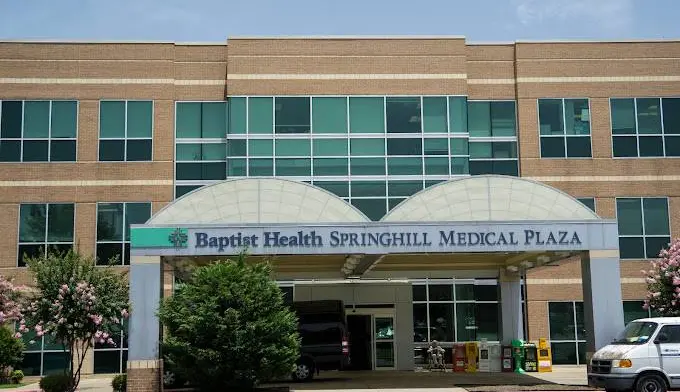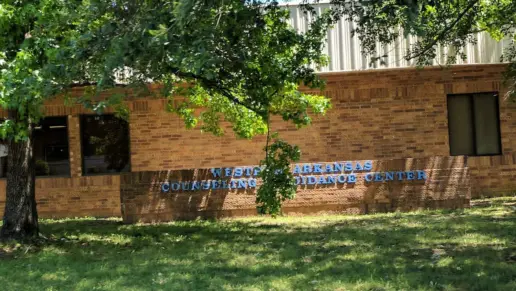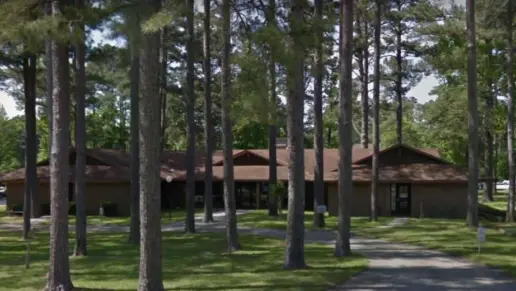About Baptist Health Behavioral Health Clinic-North Little Rock
Baptist Health Behavioral Health Clinic – North Little Rock is a facility where people can find the help and support they need when dealing with mental health challenges and substance use issues. Located on Springhill Drive, in North Little Rock, Arkansas, the clinic is committed to providing a welcoming environment for anyone willing to start their recovery. Whether an individual is struggling with anxiety, depression, addiction or a combination of these, the clinic’s team is there to help.
Psychiatric Specialty
The facility offers assistance to support individuals on their recovery journey, from psychiatric evaluations to different types of therapy and counseling. While the clinic focuses heavily on mental health care it also helps connect individuals to additional resources for substance use recovery such as inpatient rehab, outpatient services or specialized programs within the Baptist Health network. Please note that some of these services may not be available at this specific location. This clinic specializes in psychiatry for adults, adolescents and children. They also offer a second location in Little Rock that provides additional behavioral health services.
Family and Individual Counseling
A big part of their approach is looking at the whole person, not just the issues they’re facing. In addition to individual therapy, which may include things like cognitive behavioral therapy (CBT), the clinic also offers family counseling. This can be crucial because recovery often involves repairing relationships that may have been affected.
Practical Assistance
When you visit Baptist Health Behavioral Health Clinic the team makes sure you’re taken care of from start to finish. They help with scheduling and sorting out insurance issues and are always there to answer any other questions, so you can focus on your recovery.
Rehab Score
Gallery

Location
Accepted Insurance
Other Forms of Payment
Medicaid is a state based program that helps lower-income individuals and families pay for healthcare. Medicaid covers addiction treatment so those enrolled can use their coverage to pay for rehab. When a program accepts Medicaid the client often pays very little or nothing out of their own pocket.
Medicare is a federal program that provides health insurance for those 65 and older. It also serves people under 65 with chronic and disabling health challenges. To use Medicare for addiction treatment you need to find a program that accepts Medicare and is in network with your plan. Out of pocket costs and preauthorization requirements vary, so always check with your provider.
Self-pay involves paying for treatment out of your own pocket. You can use savings or credit, get a personal loan, or receive help from family and friends to fund your treatment. If you don't have insurance or your insurance plan doesn't cover a specific program, self-pay can help ensure you still get the care you need.
Addiction Treatments
Levels of Care
Treatments
Many of those suffering from addiction also suffer from mental or emotional illnesses like schizophrenia, bipolar disorder, depression, or anxiety disorders. Rehab and other substance abuse facilities treating those with a dual diagnosis or co-occurring disorder administer psychiatric treatment to address the person's mental health issue in addition to drug and alcohol rehabilitation.
Mental health rehabs focus on helping individuals recover from mental illnesses like bipolar disorder, clinical depression, anxiety disorders, schizophrenia, and more. Mental health professionals at these facilities are trained to understand and treat mental health issues, both in individual and group settings.
Substance rehabs focus on helping individuals recover from substance abuse, including alcohol and drug addiction (both illegal and prescription drugs). They often include the opportunity to engage in both individual as well as group therapy.
Programs


Clinical Services
Research clearly demonstrates that recovery is far more successful and sustainable when loved ones like family members participate in rehab and substance abuse treatment. Genetic factors may be at play when it comes to drug and alcohol addiction, as well as mental health issues. Family dynamics often play a critical role in addiction triggers, and if properly educated, family members can be a strong source of support when it comes to rehabilitation.
Group therapy is any therapeutic work that happens in a group (not one-on-one). There are a number of different group therapy modalities, including support groups, experiential therapy, psycho-education, and more. Group therapy involves treatment as well as processing interaction between group members.
In individual therapy, a patient meets one-on-one with a trained psychologist or counselor. Therapy is a pivotal part of effective substance abuse treatment, as it often covers root causes of addiction, including challenges faced by the patient in their social, family, and work/school life.
Staff

President & CEO
Contact Information
3201 Springhill Dr
Suite 400
North Little Rock, AR 72117











